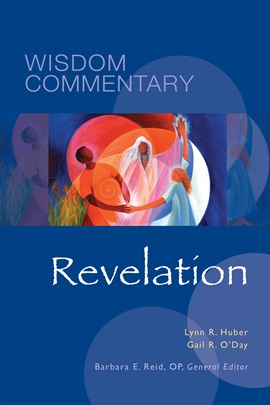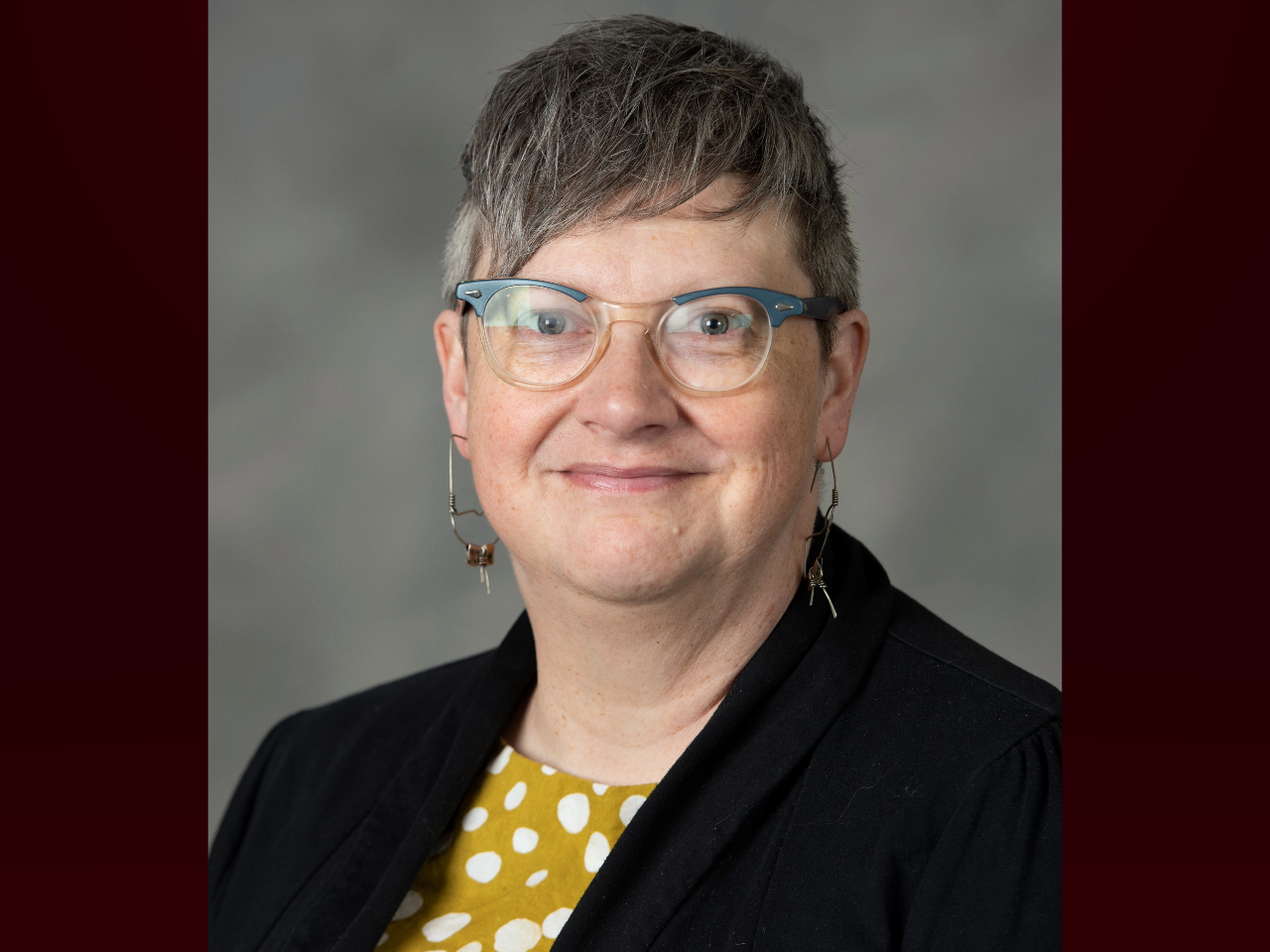Elon’s Faculty Research and Development committee selected Huber’s proposal for a full-year, full-pay sabbatical in 2024-25 to research and complete a monograph about racialized interpretations of the Book of Revelation
Lynn Huber, the Maude Sharpe Powell Professor, professor of religious studies and interim chair of the Department of Religious Studies, was awarded a full-year, full-pay sabbatical through Elon to research understudied, racialized interpretations of biblical texts.
Huber will spend the 2024-25 academic year studying the Book of Revelation — her area of scholarly expertise — interrogating how biblical interpretation has shaped racialized identities and writing a monograph, “Revelation and Whiteness.” Specifically, she will examine color symbolism and how it contributes to whiteness and anti-Black racism in modern America.
“Revelation is a text that shapes much of the views of white evangelical Christians,” Huber said. “I’m interested in making explicit connections between language that engages in color symbolism, which wasn’t racialized when it was written, but has been interpreted and racialized.”
In doing so, she will centralize under-explored impacts of the text that challenge racialized perceptions of God within some sects of the Christian faith.
Elon’s Faculty Research and Development Committee selected Huber for the competitive sabbatical. Faculty are encouraged to apply for sabbaticals if they are conducting extensive research or engaged in significant additional study that will result in their professional development. At Elon, faculty may apply for a full-year/full-pay sabbatical, a leave of one–half of a full year’s teaching load at full salary, or for a leave of a full academic year at half salary.
The committee selected Huber’s proposed sabbatical project based on its potential to shape future research in religious studies and on her previous record of scholarly achievement and publications, said Rozana Carducci, chair of the Faculty Research and Development Committee and associate professor and graduate director of the M.A. in Higher Education program in the Jo Watts Williams School of Education.
“The committee found Dr. Huber’s proposed sabbatical project to be thoughtfully conceptualized with significant potential to advance the field of biblical studies. In addition, Dr. Huber has a strong record of scholarly achievement related to the sabbatical project, having previously written two monographs and nine peer-reviewed articles within her disciplinary specialty.”

Huber is a prominent scholar in the field of Apocalypticism, New Testament studies and ancient Mediterranean religions. She previously has published two books, “Thinking and Seeing with Women in Revelation,” in 2013, and “Like a Bride Adorned: Reading Metaphor in John’s Apocalypse,” in 2007.
This month, Liturgical Press published her commentary to the Book of Revelation through a queer and feminist lens in its Wisdom Commentary series. In researching that project, she found gaps in research around the Book of Revelation and race, which led her to begin exploring subjects for “Revelation and Whiteness.”
The opportunity to engage in deep scholarly research influences and heightens Elon faculty’s teaching and mentorship.
“Beyond benefitting the individual faculty member with extended time to focus on their scholarly interests, Elon benefits from faculty sabbaticals in the form of faculty infusing new knowledge and skills in their teaching and mentoring roles, and the production of scholarship that advances academic disciplines and an Elon education,” Carducci said.
When she returns from sabbatical, Huber plans to develop a new course at Elon examining racialized interpretations of the Bible.
“I try to help students think about the connections between the ancient texts of the New Testament and the world we live in,” Huber said. “Connections around race is an area I’m trying to learn more about so I can help my students better understand them.”



